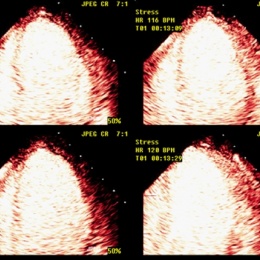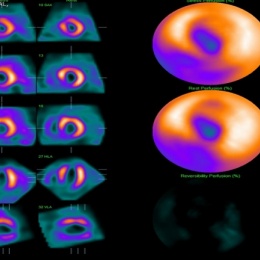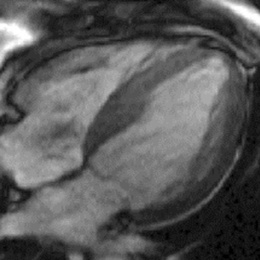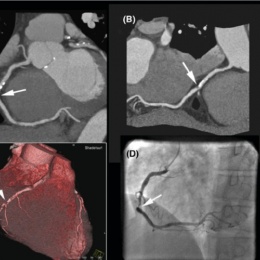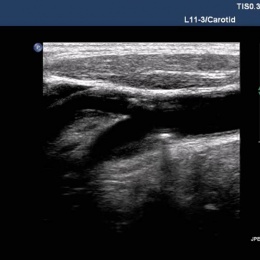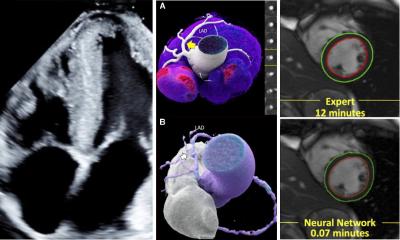Article • Risk stratification
Cardio-controversy: Added value through CAD imaging?
ESC Congress, Paris: Two key strands in the ‘Controversies in imaging coronary artery disease’ session at the congress will examine the pros and cons of imaging use for coronary artery disease risk stratification in asymptomatic patients; the second strand will focus on whether CT angiography should be the first choice for imaging coronary artery disease in patients with stable chest pain.
Report: Mark Nicholls
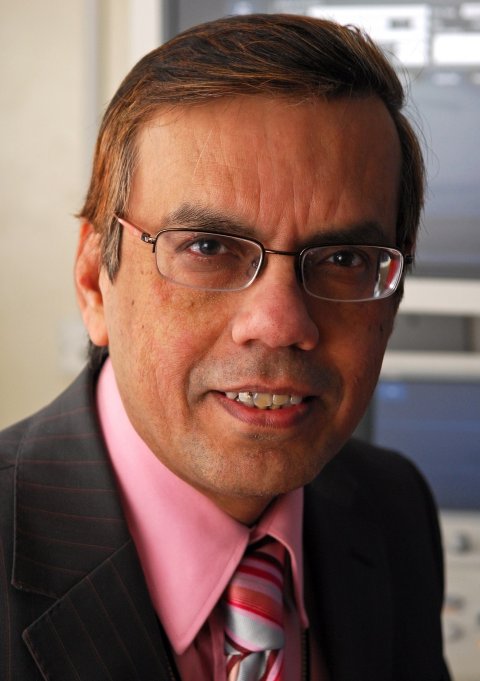
Co-chair Roxy Senior, Professor of Clinical Cardiology at the National Heart and Lung Institute, Imperial College London and Consultant Cardiologist and Director of Echocardiography at the Royal Brompton Hospital, London, explained that different viewpoints remain within this field. ‘The jury is still out regarding added value of imaging beyond cardiovascular risk factor modification in asymptomatic individuals,’ he said. ‘This is largely because there are no adequately powered, randomised studies demonstrating the added value of imaging beyond risk factor modification that has been shown to improve outcome in such patients.
‘These studies are perhaps not yet done because of the large number of patients that need to be recruited to show a difference in outcome because of low event rates in these asymptomatic patients. The controversy of the second topic stems from the fact that CT angio views the coronary arteries but does not provide the functional significance in terms of causing ischaemia of moderate grade lesions versus other forms of cardiac imaging, namely stress imaging, which establishes myocardial ischaemia as the cause of the chest pain.’
Major question: Is the chest pain due to myocardial ischaemia?
It is yet to be conclusively established that identifying such lesions and instituting preventive lesions can improve clinical outcomes
Roxy Senior
Senior added that, in patients with suspected angina, the major question is whether the chest pain is due to myocardial ischaemia. He said stress imaging answers this question, but CT does not, unless it shows severe lesions. ‘On the other hand,’ he continued, ‘CT angio can rule out coronary artery disease as the cause of chest pain and, at the same time, identify milder forms of CAD for which preventative measures may be instituted.’ He also said the absence of myocardial ischaemia does not rule out the presence of CAD albeit not severe enough to cause ischemia. ‘However, it is yet to be conclusively established that identifying such lesions and instituting preventive lesions can improve clinical outcomes. Lately, it has also been shown that CT angio can also assess the functional significance of coronary stenosis, however, its clinical efficacy is yet to be demonstrated in a real-life scenario.’
Recent ESC/AHA/ACC guidelines say that stress imaging, including Exercise ECG, (only in low risk patients with normal baseline ECG) is the first line test in patients with stable chest pain. Carotid ultrasound for atherosclerosis and CT of coronaries for assessing calcium load are recommended in intermediate risk asymptomatic subjects, though they clearly state that this remains controversial. ‘The important fact to consider is, over the years, mortality in patients with suspected stable angina has reduced considerably and in fact a positive test such as myocardial ischaemia and incidence of flow-limiting CAD on CT is down to around 10%.
‘Hence tests that are low risk/low cost but at the same time accurate should be employed – for example, ultrasound-based tests such as stress echo combined with carotid ultrasound for the assessment of atherosclerosis may be employed.’ However, Senior also states that an adequately powered randomised study vs CT angio may still need to be performed.
The ESC session will explore a number of these key questions through expert presenters – topics, Senior said, that are clinically very relevant and highlight a dilemma regularly faced by cardiologists. ‘We have excellent speakers with great experience in this field,’ he added. ‘I am hoping the delegates at the end of the session will have an excellent knowledge of the literature and can make informed decisions in their clinical practices despite the controversy.’
Don't miss:
‘Controversies in imaging coronary artery disease’. 2 September 2019; 4.40-5.50pm. The Hub, ESC 2019 Paris.
Profile:
Roxy Senior is Professor of Clinical Cardiology at the National Heart and Lung Institute, Imperial College London and Consultant Cardiologist and Director of Echocardiography at the Royal Brompton Hospital in London. He is also the Director of Cardiac research at the Northwick Park Hospital, Harrow. He obtained his Masters’ degree in medicine and cardiology from the University of Calcutta, India, and came to the UK in 1989. He became a Consultant Cardiologist and Director of Cardiac Research at the Northwick Park Hospital in 1995 and took up his current role in 2010. With a major interest in echocardiography - and particularly in heart failure, coronary artery disease, valvular heart disease and acute coronary syndrome – the clinician is recognised as a pioneer of the clinical development of myocardial contrast echocardiography.
02.09.2019



